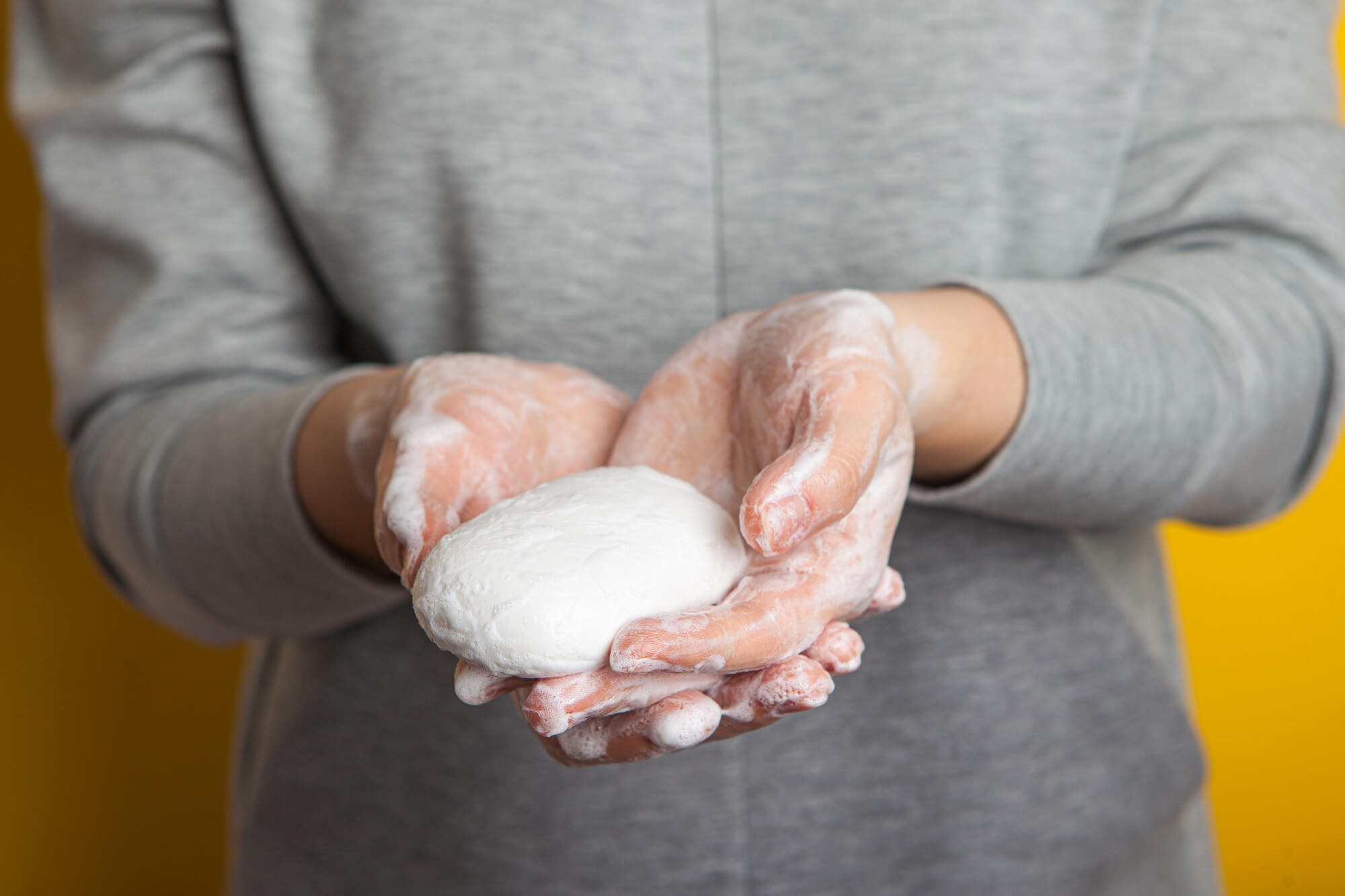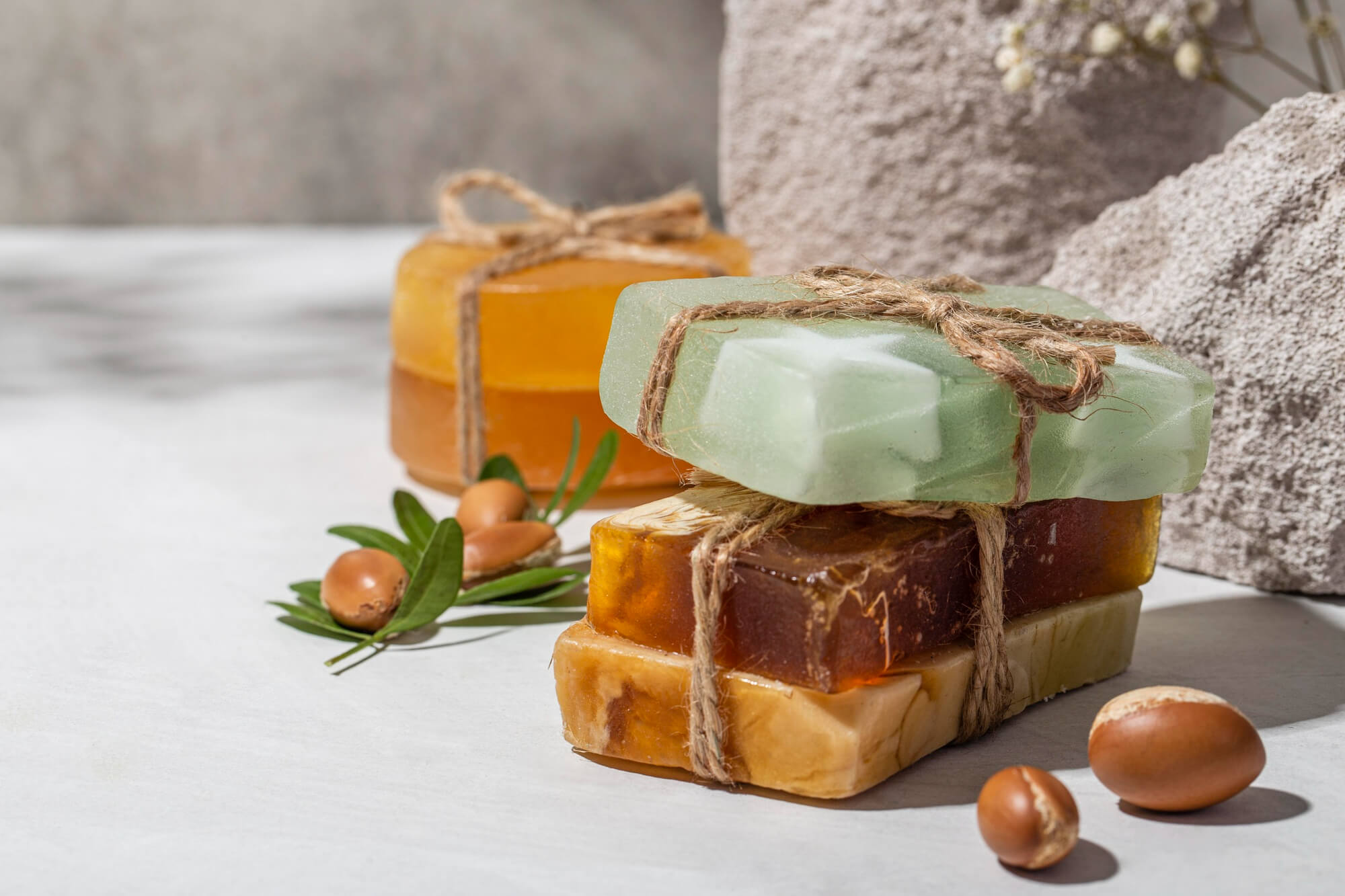How to recognize and treat soap allergies


Eva Zakharova
Soap allergy is a reaction of the body's immune system to certain substances in soap. This type of allergy can be caused by different types of soap, including laundry soap, liquid soap, tar soap, baby soap, and intimate hygiene soap. Symptoms of soap allergy can be varied, and it is not always easy to diagnose. In this article, we will look at the main signs, causes of soap allergies and treatments.
Main symptoms of soap allergies
Symptoms of soap allergy can manifest themselves in different ways, but the following signs are most common:
- Skin rash and redness;
- Itching and skin irritation;
- Swelling and inflammation;
- Cracks in the skin;
- Dry and flaky skin.
In a child, soap allergy may be more severe and cause additional symptoms such as crying, irritability, and sleep disturbance.
Why soap allergies occur

Soap allergies can occur because of intolerance to the individual components contained in soap, or because of hypersensitivity of the skin. Intimate soaps and baby soaps usually contain milder components, but sometimes they too can cause allergies.
Types of soaps that can cause allergies
Soap allergies can be caused by the following components:
- Chemicals such as Sodium Lauryl Sulfate (SLS) and Sodium Laureth Sulfate (SLES);
- Synthetic preservatives such as parabens;
- Animal oils and fats;
- Plant extracts.
In addition to the main components, soap allergies can be caused by fragrances and dyes. Synthetic fragrances and dyes can cause skin irritation and allergic reactions in people with hypersensitivity.
How to diagnose soap allergies

To diagnose soap allergy, an allergist may prescribe the following tests:
- collection of a medical history and evaluation of the clinical picture;
- skin tests using allergens;
- blood tests for the presence of IgE antibodies.
The doctor may also recommend that you keep an allergy diary to identify possible links between contact with soap and the manifestation of allergy symptoms.
How to treat soap allergies
Soap allergy treatment involves the following methods:
- Exclusion of contact with the allergen, that is, the replacement of soap with hypoallergenic;
- Using antihistamines such as Suprastin, Cetrin or Phenistil to reduce itching and inflammation;
- Use of topical corticosteroids, such as Hydrocortisone or Advantan, to quickly relieve allergy symptoms;
- Use of moisturizing and soothing creams and ointments to restore the skin barrier.
What to do if you are allergic to soap

If you are allergic to soap, follow these recommendations:
- Immediately stop using the soap that is causing the allergic reaction and replace it with a hypoallergenic soap or a soap with minimal ingredients.
- See your allergologist for a diagnosis and adequate treatment.
- Follow your doctor's recommendations and use allergy medications correctly.
- Pay attention to the composition of soaps and other cosmetic products to avoid contact with allergens.
Skin care tips for soap allergies
When you are allergic to soap, your skin care must be especially gentle. Follow these recommendations:
- Use mild cleansers based on creams and lotions;
- After washing, be sure to blot your skin with a soft towel;
- moisturize your skin regularly with hypoallergenic creams and lotions;
- Avoid wearing clothes made of synthetic materials, which may cause additional skin irritation.
In conclusion, soap allergies are a fairly common problem, but with proper skin care and the use of the right cleansers, you can significantly reduce the risk of developing an allergic reaction. If you or your child is allergic to soap, you should consult an allergist and follow his or her recommendations for treating and preventing the allergy. Taking care of your health and the health of your loved ones will help to avoid unpleasant allergy symptoms and keep your skin healthy and beautiful.
New materials
Popular Articles
We recommend reading
Contact us in the Contact Us section to ask questions, offer ideas, or for more information about our allergy resource.
Our articles are your trusted source of allergy knowledge. Learn how to make life with allergic reactions easier on our specialized portal.
©
Lechenie-Allergii.com. All rights reserved.
© Lechenie-Allergii.com. All rights reserved.
The information on this site is for informational purposes only and is not a substitute for professional medical advice. We recommend consulting with qualified medical professionals for accurate information and advice.
 English
English  Українська
Українська  Русский
Русский 









